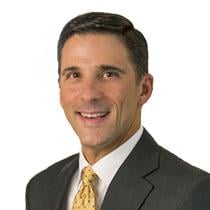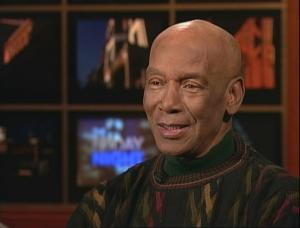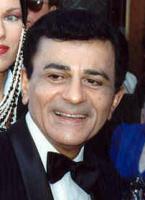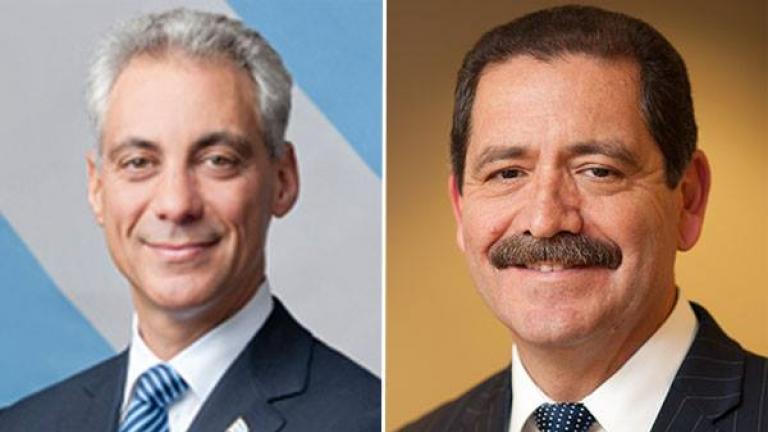Three months before his death, Chicago Cubs legend Ernie Banks signed a new will giving control of his assets to his caregiver, Regina Rice. Banks’ adult sons and estranged wife are accusing Rice of manipulating Banks to gain access to his estate. Other recent high-profile estate quarrels include those of actor Robin Williams and disc jockey Casey Kasem. David Lieberman, a partner at law firm Levin Schreder & Carey who specializes in estate law, joins us to discuss the dynamics of wills and the disputes that can arise from them.
Read an interview with Lieberman.
 What do you make of the dispute unfolding around Ernie Banks’ estate? Do you believe Banks’ caretaker took advantage of him?
What do you make of the dispute unfolding around Ernie Banks’ estate? Do you believe Banks’ caretaker took advantage of him?
It’s difficult to say from what I’ve read in the newspapers because you get two very different accounts from two different sides. It certainly does raise questions when there’s a caretaker who becomes very involved in an elderly person’s life as their health is declining, especially when that person takes steps to separate the elderly person’s family from them.
There’s actually a new addition to the Illinois Probate Act that’s relevant to this case. If a will benefits a caregiver, then there is a presumption that there’s some undue influence involved and the onus is on the caretaker to prove that it’s valid. So this is something that the state and General Assembly have recognized as a point of scrutiny. The law applies to wills signed after Jan. 1, 2015, so it doesn’t apply directly to Banks’ case. However, the common law recognition is that if someone has a fiduciary relationship with an elderly person, then you may also see these presumptions of undue influences, even without that statute. So that may still apply to this case.
How common is it for an elderly or ailing person to leave a majority or all of their estate to a caretaker?
I have a somewhat skewed perspective because my work focuses on disputed cases. It is uncommon, though, and it’s certainly unusual in someone’s estate plan. But it happens enough that there are a number of lawyers like me who work on these cases. These disputes with a caretaker are more infrequent. You usually see different immediate members of a family, like siblings or spouses. It’s very often the case that you have different spouses in these disputes.
 How might a caretaker manipulate or coerce someone into signing their will over to them?
How might a caretaker manipulate or coerce someone into signing their will over to them?
You can imagine the circumstances that someone is in when they’re elderly and not capable of caring for themselves. The reliance that a person in that position places on a caretaker may be very genuine. It may not be the manipulation of the caretaker. The elderly person may have a very dependent mindset. They may be very appreciative of their caretaker. If a caretaker is at fault, they may make manipulative statements about his or her own needs and may try to alienate the elderly person’s family from them.
Are there any safeguards regarding wills to prevent an older or incapacitated relative from being taken advantage of?
The biggest safeguard is communication. You need to be in communication with the people you know and trust. If you can, it’s important to find yourself a lawyer who you trust and who will be there. Find an attorney that is familiar with your documents and your needs. When you’re still relatively young and of strong mind, you need to make sure that you are surrounded by people who you trust and who you know will put your interests first. These are people that can pay attention to any changes made to your estate documents. Some people may not be able to afford a lawyer, but most people have family or friends who they trust who can keep an eye on what’s happening.
Wills are different from state to state; what happens when someone dies without a will in Illinois?
Generally, if you have a spouse and children, half goes to your spouse and the other half is given to your children. I’m not aware of too much variation from state to state in that regard. This particular issue about caregivers is one that’s receiving attention from a number of states. California has been paying attention in that area. There is also a lot of attention on the federal level. And I think it’s an issue that should receive increasing attention.
Is it normal for burial or cremation requests to be in wills?
Often, yes, you would put those requests in a will. I think, in most cases, people don’t expect a controversy. They expect their children or spouse to take care of it without controversy. Remarriage can create disputes over burial or cremation, so it would make a lot of sense to put that in your will. It’s something that a person and their lawyer should talk about when they’re preparing their will.
There is some suspicion over Banks’ former caretaker’s request to have Banks’ body cremated. Why would that raise suspicion? What would be a nefarious motivation to have that done?
If you have reason to believe that someone had a hand in bringing about the death or demise of a person, then that’s the only reason that I could imagine. There’s certainly a destruction of evidence if something untoward happens and the person is cremated.
 There have also been recent disputes over the estates of disc jockey Casey Kasem and actor Robin Williams. How do these cases compare to Banks’?
There have also been recent disputes over the estates of disc jockey Casey Kasem and actor Robin Williams. How do these cases compare to Banks’?
What I know is only from what I’ve read in the newspapers. What’s common among all of these is the existence of multiple marriages and children from prior marriages who are at odds with the later spouses. In those situations, you have people who are less aligned than they’d be if it were a tight-knit, immediate family. From what I read about the Williams’ dispute, a lot of it surrounds his personal affects. The more you lay out your wishes and intentions, the less conflict there will be. My own personal feeling is why do these objects matter? Certainly you’d want to keep a few things, but I don’t know what Williams’ kids want with his collection of bicycles and film awards. From my experience, if it’s worth hiring lawyers and paying all that money, there’s a lot of money at stake – not personal objects.
 In reference to Casey Kasem, there are allegations from the children that his last wife had a hand in his death, which is not a usual occurrence. We pay attention to these cases because there are celebrities involved, but these problems happen to everyone and arise every day.
In reference to Casey Kasem, there are allegations from the children that his last wife had a hand in his death, which is not a usual occurrence. We pay attention to these cases because there are celebrities involved, but these problems happen to everyone and arise every day.
In these cases, we’re seeing difficulty caused by estranged or numerous spouses. Do divorces, separations and remarriages complicate the will process?
Absolutely, but there are a lot of good estate planners who are familiar with that scenario and can help a person deal with it. These cases are not unique to those circumstances. People get old and they depend on their children, and all of a sudden there’s a will or trust that benefits one heir at the expense of the others. There’s a number of ways that these cases can play out.
Do you need an attorney to create a will?
You do not. Not in Illinois and not in most states.
I’ve heard that pretty much anything that you sign and write a request of bequeathal can serve as a will. Is that true?
There’s a lot of new law about that and it’s interesting. The popularity of digital documents and tablets adds a new angle to that. If you write something and sign it, there’s a good chance that you can have a court consider that a will. I wouldn’t recommend that, but if you’re suddenly in a situation where you think you only have an hour left to live, it may work.
Do these disagreements have certain hallmarks?
The number one that we touched on is that there is not adequate communication when the person is alive. The person did not discuss their intentions up front and with everyone. The next one is an effort by someone to exclude others. The other hallmark is that somebody is surprised after someone dies regarding the distribution of property or how someone chooses to have their remains disposed of. These can be difficult discussions to have. There isn’t anybody who wants their legacy to be a dispute over their assets. The primary hallmarks are surprise and lack of communication. The other inevitable hallmark is that these cases are always sad.
What kind of effect do these disputes have on the decedent’s legacy?
The public figure Ernie Banks was a big part of my childhood. Does this sully his legacy? I hope not. But obviously if something like this gathers a lot of attention then it becomes a salient part of what you think about this person. Even finding out that he had all this family discord. It makes you view this public figure differently.
As for everyone, most people are not famous and there’s not this much attention paid to their disputes. In these cases, it might not reflect on the deceased person’s legacy, but it does rip apart families in a way that they can’t be healed.
How do you think the Banks situation will turn out?
I certainly hope they’ll resolve this because it’s worth the effort, but often you can’t. It is too early to tell and I have no idea how much money is at stake. Unfortunately, that factor can affect how long these cases are litigated. I’ve seen cases like this go on for 10 years.
Interview has been condensed and edited.




